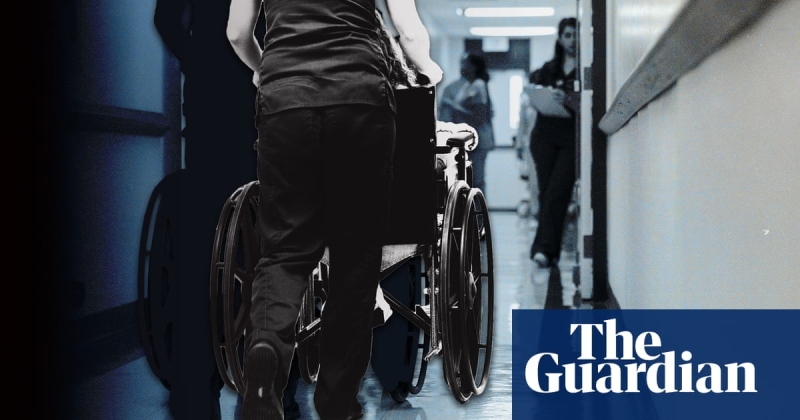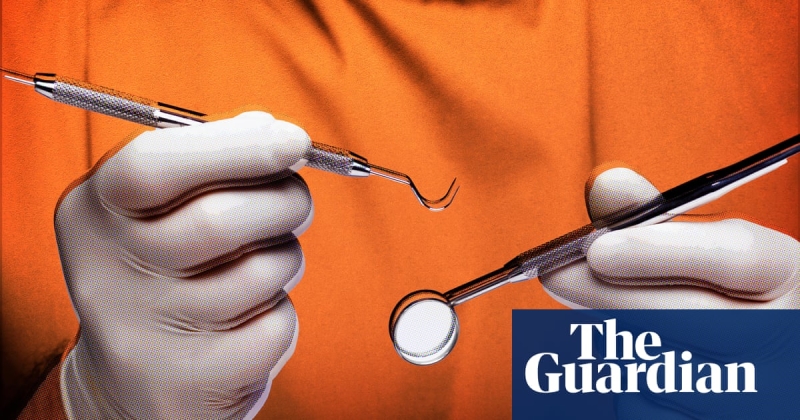A mother talks about the trauma of seeing her daughter admitted to a psychiatric ward and what it told her about the stresses faced by staff in the public health system
- Get our breaking news email, free app or daily news podcast
Around five years ago, we were just a normal family, living comfortably and happily. Then bang – out of the blue – a series of utterly perplexing and confusing changes started in our youngest child, Evie*. She was 16 years old.
No one could help us understand them. Everyone said “she’s a teenager and it’s just a phase”. Evie had been a very bright, capable student until that point, then her grades and engagement with school started to plummet dramatically and trouble with friendships started to emerge.
Once she fell below the minimum attendance level, it gave the school a trigger point asking us to take her out because it was getting close to the HSC term and they lost any kind of confidence in her to do well. She lost the structure of school, she lost the social community, and that just made everything worse.
The personality changes were making her unlikeable; if you didn’t have to continue a relationship with her, you would just drop out because it was too hard. She lost everybody, except the people that really, really loved her.
I rang up our local mental health community centre and tried to explain we felt like our daughter was slipping away from us. They tried to help, but as soon as they hear that you have a child that’s 18 years old, there’s nothing they can do. They said: “You’re going to have to wait for the crisis.”
When the crisis did come, we felt we needed to get the police to protect her from herself and we ended up taking her in for a mental health assessment at one of our big city hospitals.
She went in around about 11.30pm and was heavily sedated. It was hideous being in that emergency department, waiting for the right attention to come to my daughter – pagers going off, beds going everywhere – but all we saw were good people going about their jobs, doing their best. People under pressure, just constantly juggling and triaging.
Evie was assessed the next morning by Dr J*, the psychiatrist working in the emergency department, who took my husband and I aside and told us: “Your daughter has acute psychosis.”
The system kicked in: she would be going into the psychiatric facility as an involuntary patient. We had no idea an assessment in an emergency department could lead to this.
I asked Dr J how long Evie would be in the psychiatry ward but she said she couldn’t say. I replied that I wasn’t comfortable with having no idea. She looked at me, and with every ounce of human compassion in the back of her eyes, said: “I’m really sorry, but this isn’t your decision.”
I’m a pretty resilient person, but at that point, handing our daughter over to other people to decide what was going to become of her – this is my baby, my gorgeous baby girl – I cannot tell you how helpless and frightened I felt.
I also cannot tell you how many times Dr J’s pager went off while we were in her company. That poor woman with these huge responsibilities, determining if somebody should be involuntarily admitted into a psych ward or not, being pulled in umpteen different directions, her pager just beeping non-stop.
I said: “How are we going to tell her?” All my daughter wanted was to go home.
Dr J said: “You just go back to her bed, try to keep her nice and calm, I’ll tell her.”
When a nurse came and said she had to take Evie to the ward, I said that Dr J was meant to be coming back to tell my daughter.
The nurse said that was OK and that we would meet the doctor in the ward. Evie was elated, thinking she was getting out of the bed to be going home.
The nurse buzzed us in to a space where you can’t go anywhere else without more buzzers being pressed. You walk in and these doors shut behind you, and you recognise the sound – the sound that these doors cannot be opened. We’re locked in.
At that point both my daughter and I absolutely panicked. She panicked because she realised what was happening, and I panicked because I realised she realised.
Evie said: “Don’t, Mum, don’t do this to me, Mum.”
I was clinging on to her, and said: “Don’t worry. I’m not leaving you.”
The nurses asked me what the problem was and I explained that there had been a mistake and that Dr J had assured me that she would tell my daughter personally what was happening.
Dr J arrived from the emergency department to the psychiatric facility’s waiting room within five minutes. She said, “What’s the matter? What’s going on?”
And I looked at her and said: “You said that you would tell her.”
She immediately put her hand up to her mouth in that reflexive way that you do when you’ve just realised you didn’t do something, and gasped.
How could I blame her? I witnessed with my very own eyes, the stress and the pressure that she was under. I could see how easy it would be to forget.
My daughter was taken away in a sobbing, hysterical mess.
That little bit of my story sums up so much of what was happening in the system: really good people doing their absolute best but in impossible circumstances. You not only have an underfunded and under-resourced system but it’s in a domain of health where you need the most.
The admission to hospital is a traumatising event, so what you need is people that are fully resourced to be able to pay attention to that trauma and support everybody. But because there’s too much emotion and shock and confusion on the family side, and there’s too little time and patience on the medical side, nothing gets off to a good start.
It doesn’t matter if you’ve got private health insurance: if you’ve got an adult child who is acutely unwell, and they don’t see themselves as unwell, no private psychiatric facilities are of any value as they cannot admit involuntary patients. What you need is a well-funded public health system.
Everybody has a vested interest in having a modern, well-resourced, well-funded, well-integrated, well-run mental health system – and we don’t.
We already knew before the NSW psychiatrists threatened to resign. We’ve known since the Burdekin report came out, 30 years ago.
Evie was eventually discharged because the hospital needed the bed for a patient who was more unwell. She came home and went off her medication straight away.
But over the course of several admissions to the psychiatric facility that year, the continuity of care Evie received meant the psychiatrist developed a personal knowledge, allowing her care and medication to improve.
You can’t replace the psychiatrist’s knowledge of the medications which allow patients to stabilise and return to themselves – in the same way that each role of mental health professionals, from social workers to psychologists to allied health staff, is vital.
Eventually Evie was able to be transitioned to an outpatient unit which helped her get better. While she has ongoing challenges, she has not had psychosis for a number of years and no longer needs medication.
We are very fortunate to have received, I believe, the best of what a very suboptimal system can offer.
Psychiatrists are resigning because they feel they have no choice but to say: we cannot keep working this way, delivering such a poor level of care.
I think the root cause is that we stigmatise mental illness and we consider people who are struck down by it as somehow unworthy.
My daughter benefited from the right expertise at the right time. Anything less is morally wrong because it could be your son or your daughter.
I worry about other families whose journeys are just starting.
*Names and some details have been changed to protect anonymity.





